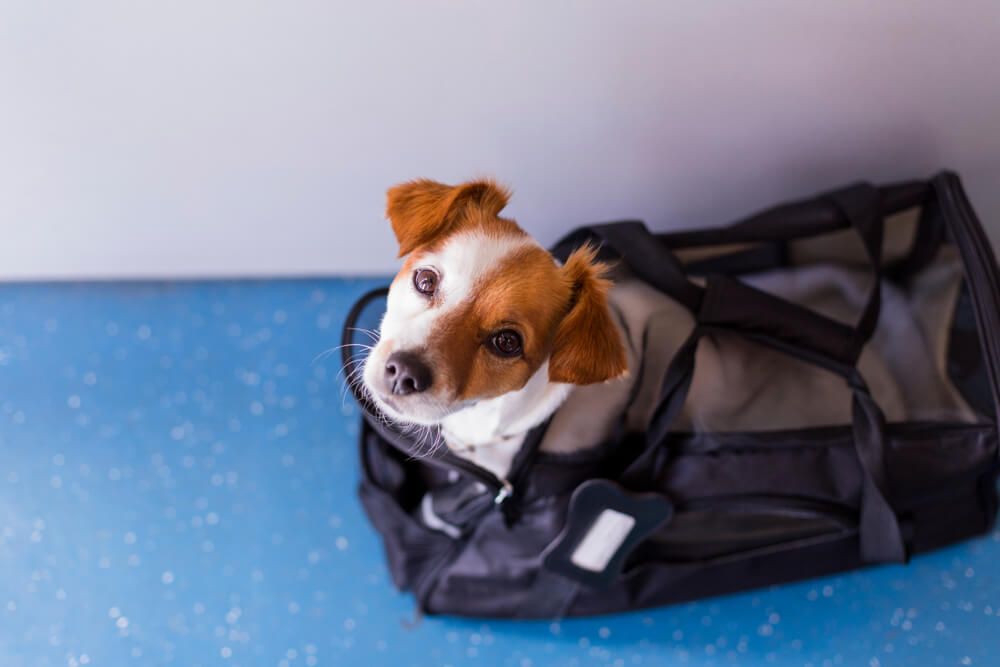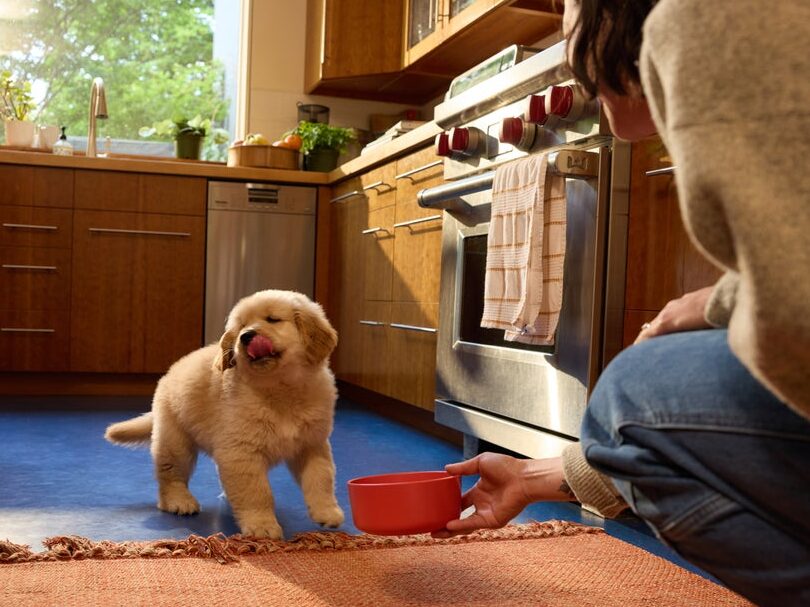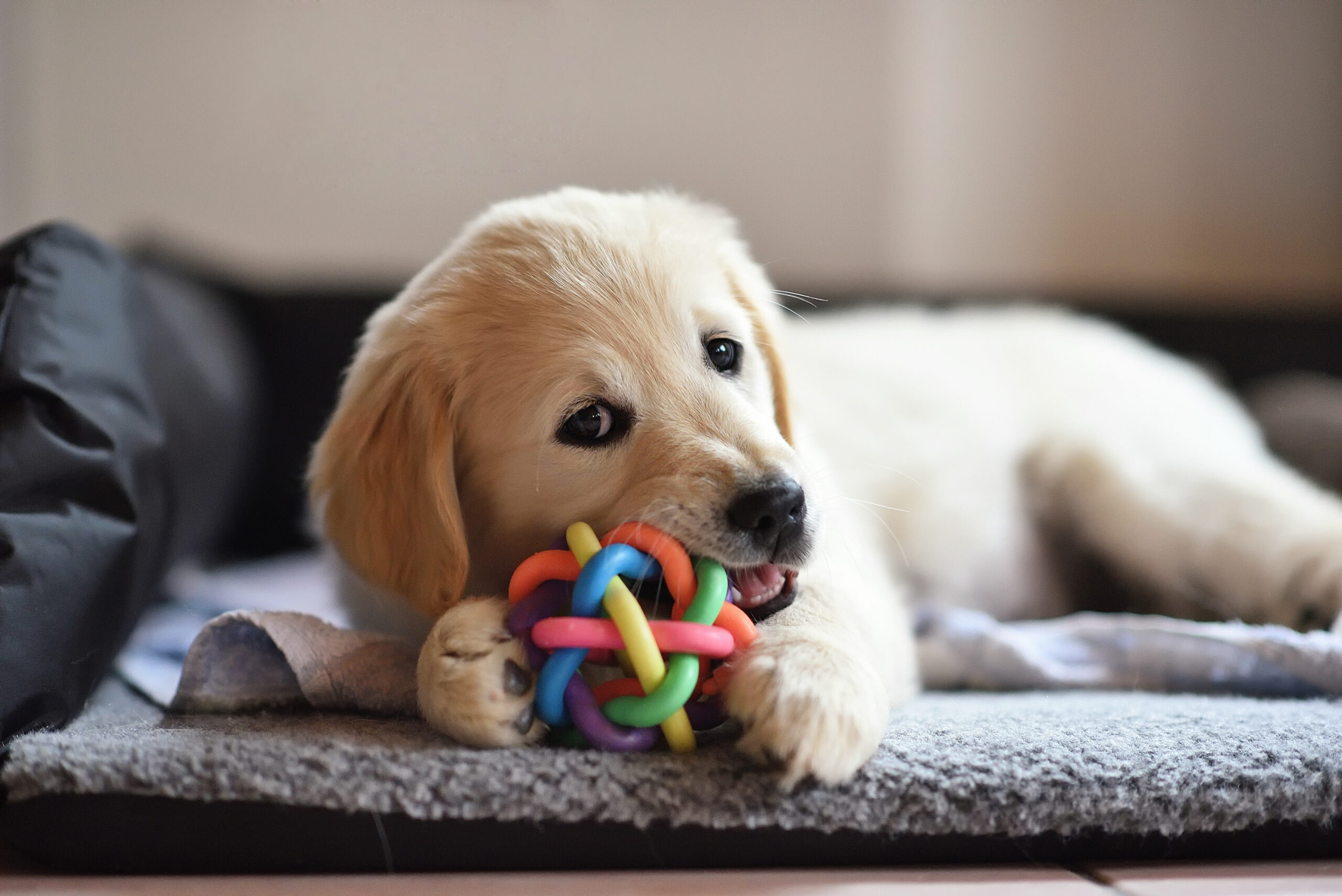Hey Ollie blog readers! We’re offering you an exclusive 60% OFF your starter box! Try now!
House fires, flooding, and power outages can be devastating to you and your family. When that family includes a four-legged best friend it is important to take extra steps to ensure everyone knows what to do when the worst happens.
In order to help you prepare, we chatted all things fire safety and emergency response with Red Paw Relief founder, Jennifer Leary. Red Paw Emergency Relief Team is an emergency services, nonprofit organization run by firefighters that works in conjunction with the Philadelphia Office of Emergency Management, the Philadelphia Fire Department, the American Red Cross, and other public and private disaster relief organizations to provide emergency assistance including search & rescue, emergency transport, shelter, and veterinary care to animals involved in fires and other residential disasters.
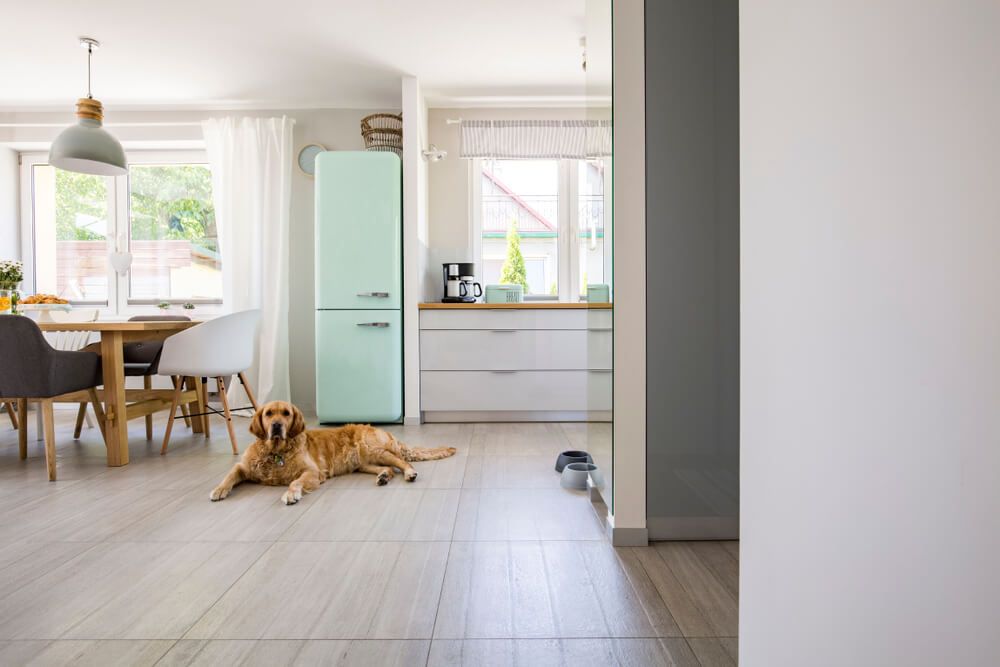
Preventing house fires when you have a pet
Practice proper fire safety
You should be practicing proper fire safety habits whether you have a pet or not. House fires are devastating and expensive. Even if lives aren’t lost, it doesn’t feel good to lose all your personal and likely sentimental things. While it is good to have the perspective of “it’s just stuff” it’s also never fun to lose things you care about.
- Remember to:
- Check that you have working smoke detectors in your home and test them regularly
- Turn off appliances when not in use
- Supervise children and pets around open flames
- Blow out candles and keep them away from kids and pets
- Use caution when cooking with grease
- Keep a working fire extinguisher in your home
Unplug smaller appliances when not in use
In addition to turning off your appliances, Jen recommends that you actually unplug minor appliances when you aren’t using them. These include blowdryers, curling irons, coffee makers, laptops, and cell phone chargers. Even though these items may be turned off, there is still electricity running into them.
Ensure major appliances are plugged in correctly
Appliances like refrigerators, air conditioners, and washers and driers need to be plugged into the correct type of outlet, with the correct cord. Some window unit air conditioners should not be plugged into power strips or extension cords. Consult your unit’s instruction and safety manual for further instruction as to how to plug it in and how long it can run at a time.
If you have a grill, keep it a proper distance from your home, and keep pets away
While exact fire codes may vary, ensure that your grill is not on a deck or patio and far enough away from your house. When you are using the grill or when it is hot, train your dog not to get close to it. Cheeseburgers on an open grill can be tempting and you do not want your dog to get seriously burned trying to score a snack. Have someone supervise your pup when the grill is on and there is food on it. If you are concenrned that they are showing too much interest, you can keep them on a leash. Teach your pup the word hot and reinforce that it means “stay away”. The cue back up is also a good one to use if you see that your pup is getting too close to the grill or even your stove.
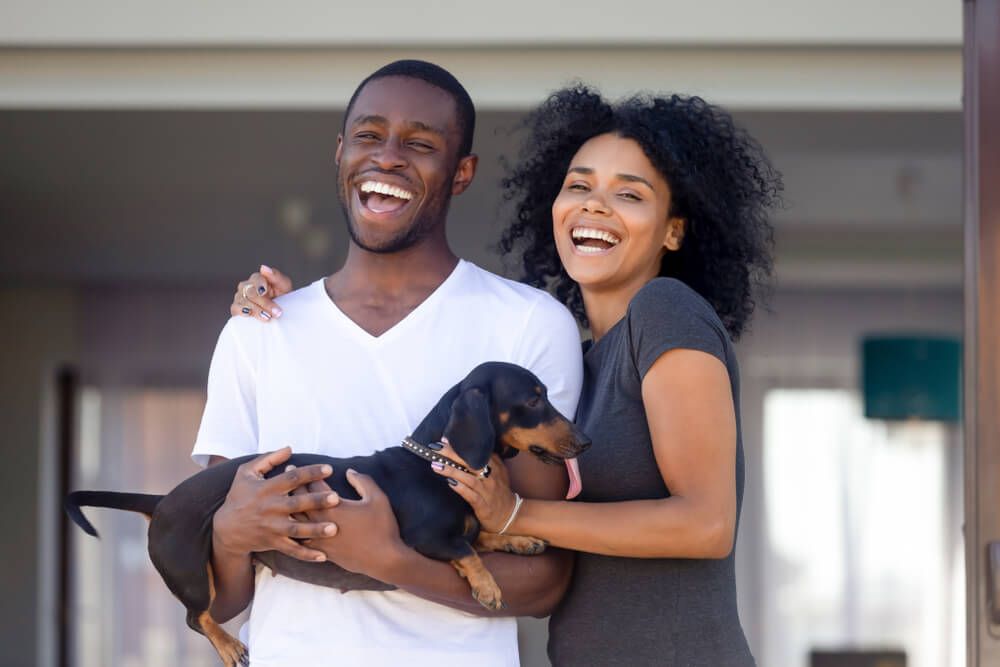
Maintain homeowner’s or renter’s insurance and pet health insurance
This isn’t exactly a fire or emergency tip per se, but it could be the difference between you getting shelter and care for you and your pup in an emergency or not. Your homeowner’s or renter’s insurance policy will also possibly cover temporary housing if you are evacuated as well as any needed cleaning, repairs, and replacing of things.
If your pup is injured in a fire or other natural disaster, their health insurance may cover treatment and medication. Check with your carrier for details.
Use the buddy system
Jen recommends that if you have pets, make sure your neighbors know. Have your pets meet your neighbors if possible and try to get them comfortable with the neighbors. If you aren’t home in an emergency and your neighbors need to help your pet, at least this way they won’t be strangers. Jen also says that the save my pet decals you see on some homes are generally more of a reminder to neighbors than the firefighters. She has seen firefighters break down doors to get the fire out and dogs get out.
Pack a pet go-bag
In the event of a fire or a true emergency, you need to be able to get out of the house quickly. Jen recommends packing an emergency “go bag” and keeping it somewhere close to your home’s exit. You should also always have a leash and collar by the door so you can get them quickly or in case someone else needs to come in and rescue your pets when you aren’t home. Additionally, having these items by the door is a good signal to the firefighters that there is a pet in the home.
In your go bag you should have:
Any medication your pet takes
This is more for daily medication than monthly preventatives. If your pup takes insulin, heart medication, pain medication, or anything else daily, keep a few days worth in their go bag since you may not be able to get to your vet or pharmacy to get a replacement for a few days. Shipping from an online pharmacy may also take some time as your vet will need to approve the prescription and get the medication sent. If you or any other member of your household takes medication daily, you should also have some of that medicine in the go bag too!
Some of your pet’s food
Being displaced will probably be stressful for you and your dog. Adding a new food to the mix is not recommended as we know that can cause some tummy trouble. We’ve talked about transitioning to new food over a few days to ensure your pup doesn’t get sick. Keep a few meals in your pup’s go bag so they’ll be able to eat their food when you get to safety. Since this will only work for dry or canned food, you may want to stash some Ollie with a friend or neighbor, especially if your pup only eats Ollie. This way you can get it in an emergency. You can also contact our Canine Care team ASAP so we can get some Ollie out to your pup as quickly as possible.
A cell phone charger
Hopefully, you will have your cell phone on you when you leave your home. Since you will probably need to make a lot of calls quickly, your battery will drain fast. Having an extra charger in your bag will mean that you can keep making and getting calls without your phone dying.
Important papers
Keep copies of important documents in your go bag. This could include copies of your pup’s vaccine records, homeowner’s or renter’s insurance policy, a copy of your drivers license and anything else you’d want access to in an emergency. Even if you have these documents in your Google Drive or other cloud based storage, having physical copies will be important if you can’t use your phone or computer.
A copy of your emergency plan and important phone numbers
We will talk about how to write your plan in the next section, but once you have a plan or plans, type them out and make sure a copy makes it into your bag!
Cash and a debit or credit card
Make sure to have some cash and a debit or credit card in your bag. This will allow you to make purchases more easily until the rest of your items can be replaced. You also may need the credit card to secure a hotel room for the night. Make sure knowing which hotels in your area allow pets is part of your emergency plan.
Anything else that might be needed immediately or hard to replace quickly
While you want to keep the bag easy to grab quickly and not need a giant suitcase. Pack things that you might need immediately. Think hand sanitizer, an extra pair of underwear, glasses, etc.
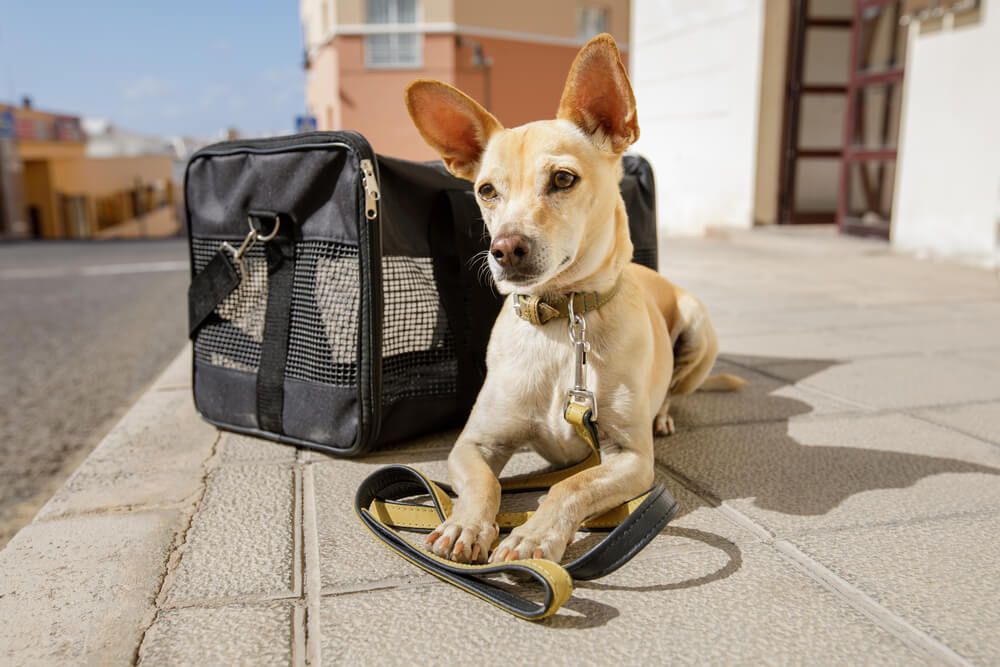
Have an emergency plan
Since we’ve mentioned it a few times already, we want to make sure you know how to create a good emergency plan. This plan will be more like a choose your own adventure story since you can never be 100% sure what you’re planning for. The more scenarios you can plan for the less stressed you’ll be in a real emergency.
Once you have safely gotten out of your home you will need to have a few places to go.
If the disaster is only impacting your home, like a fire or something else that has only affected your house, can you stay with a friend, or in a pet-friendly hotel in the neighborhood? Make a list of all of the potential places you can stay close by. Be sure to include phone numbers in case you do not have your cell phone to look them up.
If the disaster is larger, like a flood, and you need to go a few miles further, where will you go? Do you have someone further away you can stay with? What pet-friendly hotels are further away? Make a list of these and include phone numbers.
Now, once you know where you can go, determine how you will get there. Even if you have your own car, it may not be available to you. For example, if a large tree or object falls and you can’t get out of your garage, or if there is an active fire and it is unsafe for you to access it. Can you get a ride with a friend or rely on ridesharing services like Uber or Lyft? Remember that if you choose the latter, transporting pets is at a driver’s discretion. When you are paired with a driver let them know the situation and ask permission. If you can get your pets into a carrier or provide a towel to protect the seat of the car, that is ideal. In an emergency situation, this may not be possible.
Training and drills for your dog (or cat)
While an emergency will be stressful and scary, there are some things you can do to help your family, including your pet, feel prepared.
1. Test your fire alarms monthly.
Have your pet with you when you test and offer treats. This will help your pup pair the sound with a tasty treat. If the sound is really scary, your pet might not take the treat the first few times. Offer calm reassurance and end the test. Remember to use a “higher value treat” don’t offer kibble or a dry biscuit. Offer something exciting to your pup like a piece of cut-up hot dog, string cheese, or even small pieces of lean steak.
2. Practice your emergency plan.
If your plan involves getting in a friend’s car and going to their house, practice it. Grab your dog and your go bag and take a ride over to your friend’s house. If going to your friend’s house becomes comfortable for your dog it will one less stressful thing in an emergency.
Train your dog to leash up or go to their travel bag or crate quickly.
The last thing you want to be doing in an emergency is chasing your pup around trying to get them into their leash, harness or crate when you have to get our the door fast. Work on the cue, leash up or get ready. That means no running around, right into your gear. If you have a cat, make sure they are comfortable getting into their carrier bags quickly. You do not want the only times they go in there to be when they are going to the vet or emergencies as this will most likely make them not excited to get in!
3. Allow your pup to ride in a few different types of cars
Since you might not be able to get to your car in an emergency, try having your dog ride in a few different cars. Have a friend or family member pick you up and go for a short ride. You could take your dog out to a dog park or for a special treat. The more variety, the better. If your dog associates going in a new car with going somewhere fun, they will be more likely to want to get in.
If you are displaced and have to stay in a pet-friendly hotel for a bit, try to make the best of the circumstances. Some hotels offer welcome amenities just for your four-legged friend. Others even have menus designed just for canine diners. Kimpton hotels are known for their pet-friendly policies.
While we hope you never need to use this information, we also hope it makes you feel more prepared for whatever life throws at you. Continue to be cautious and keep up those good fire safety habits.
The Ollie blog is devoted to helping pet parents lead healthier lives with their pups. If you want to learn more about our fresh, human-grade food, check out MyOllie.com.
Tagged As:

The nutrition your dog needs,
the food they want.

Enjoying our articles? Subscribe our Newsletters and get new articles directly to your inbox
You might also like
13 May 2025
8 MINS READ
Puppy Training Guide & Behavior Timeline
Bringing home a puppy is pure magic. It’s also pure chaos—tiny teeth, zoomies, accidents in the house, and moments that make you wonder if you’re raising a future genius or a tiny tornado. …
by Ollie Pets
10 May 2025
12 MINS READ
New Puppy Checklist: Guide To Prepare For A New Dog
Bringing home a new puppy? This checklist covers everything new dog owners need—from essential supplies to training, feeding, and first vet visits.
by Ollie Pets
3 April 2025
9 MINS READ
Home Remedies for Fleas on Dogs: 10 Natural Ways That Actually Work
Wondering what kills fleas on dogs instantly and naturally? If your pup is scratching like crazy, it may be time to take action. In this guide, we’ll show you the most effective home remedies for…
